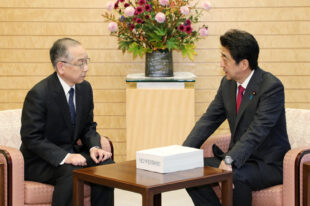The 7th Forum of Jurisdictional SAIs Convenes in Bangkok: 16-17 October 2023, Bangkok, State Audit Office of the Kingdom of Thailand
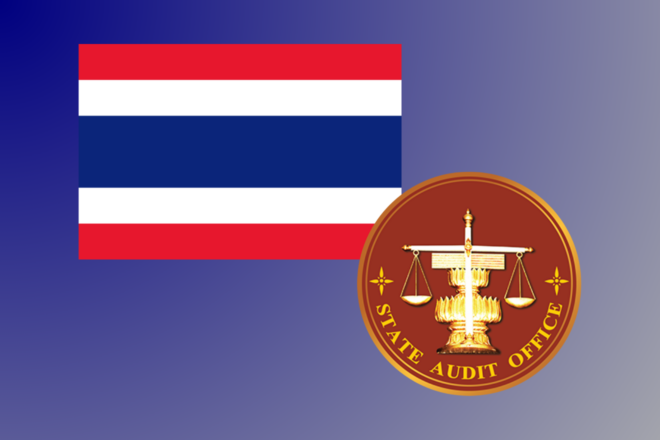
Author: Dr. Sutthi Suntharanurak
The 7th Forum of Jurisdictional Supreme Audit Institutions (SAIs), held in Bangkok on 16-17 October 2023, was inaugurated with an opening ceremony that featured a series of distinguished speakers, underscoring the global significance and collaborative spirit of the event. General Chanathap Indamra, the President of the State Audit Commission of Thailand and Chairman of the ASOSAI, extended a warm welcome to participants, setting a tone of camaraderie and shared purpose for the proceedings. Mr. Jean Yves Bertucci, Chamber President of the French Court of Accounts, contributed his insights, further enriching the dialogue with perspectives from Forum of Jurisdictional SAIs.
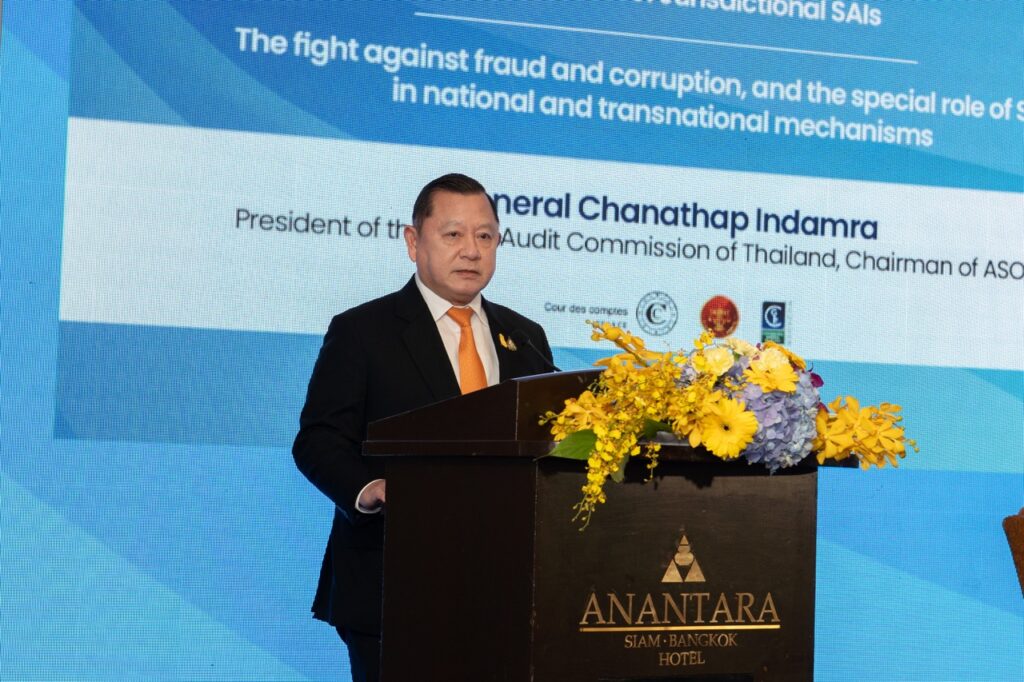
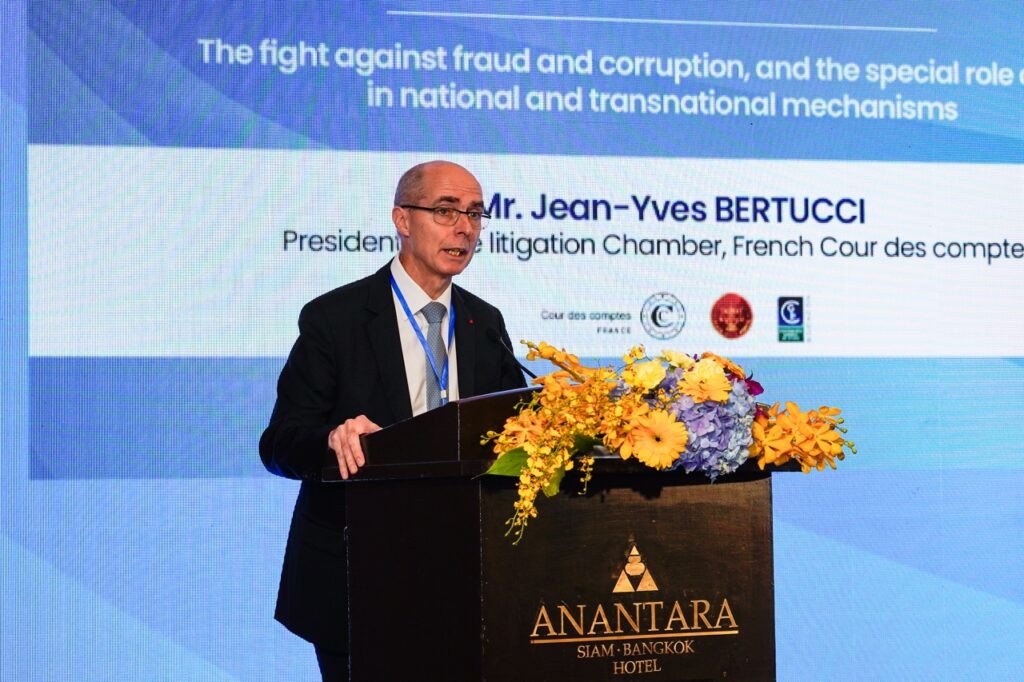
Adding to the diversity of viewpoints, Mr. Carlos Riofrio Gonzalez, the Comptroller General of the State of Ecuador, participated through a video presentation, ensuring that the global community of SAIs was well represented, despite geographical distances. The event was also graced by the esteemed presence of Mr. Bruno Dantas, the INTOSAI Chairman and President of the Tribunal de Contas da União (TCU) of Brazil, alongside Ms. Zineb El Adaoui, President of the Court of Accounts of Morocco. Together, they presented the JuriSAI project, a landmark initiative aimed at fostering collaboration and sharing knowledge among jurisdictional SAIs worldwide.
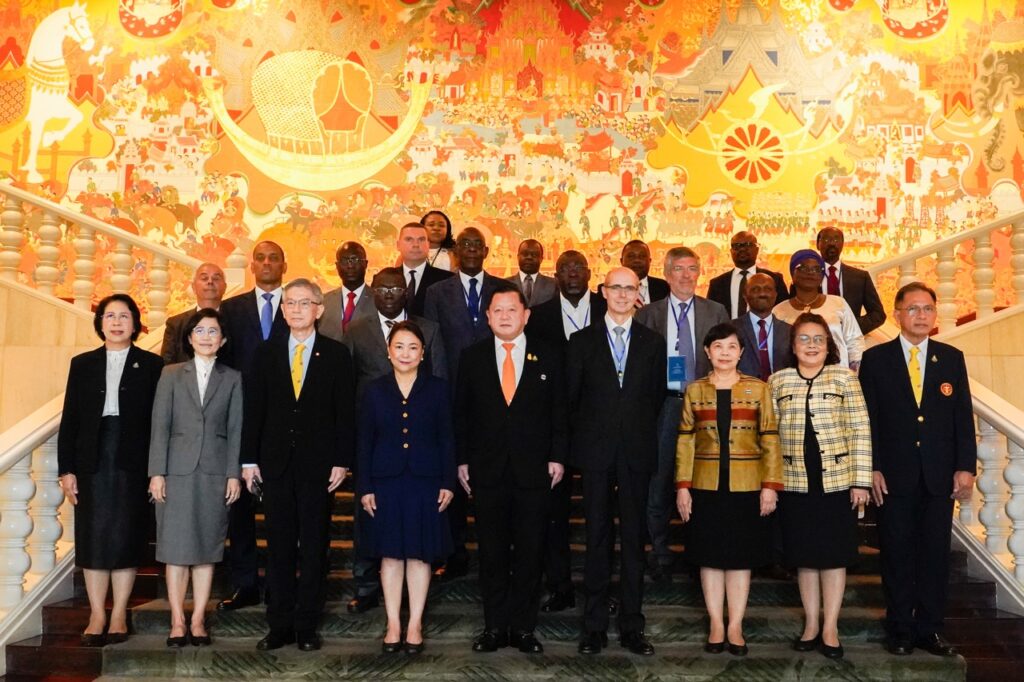
Professor Dr. Orapin Phonsuwan Sabyeroop, in her keynote at the Forum, shared the transformative journey of fiscal and financial discipline within Thailand, showcasing the pivotal milestones that have shaped the nation’s audit system, a testament to her profound influence in the field. Her discourse steered through the historical evolution of public finance auditing in Thailand, highlighting her own scholarly contributions that catalyzed significant reforms and the subsequent development of an auditing framework that meets global standards. She pinpointed critical developments such as the shift towards a more autonomous audit system, the creation of the State Audit Act, and the formation of the Budgetary and Financial Discipline Committee. These steps have been instrumental in bolstering efficiency and transparency within the public sector’s management.
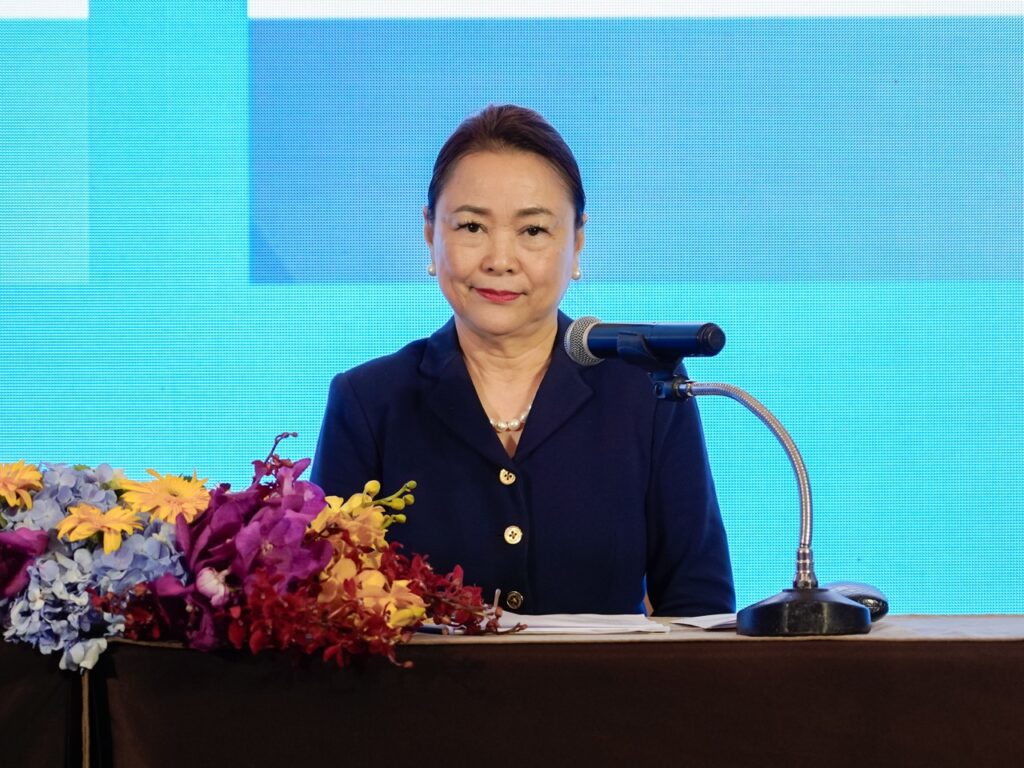
As the State Audit Commissioner, Professor Dr. Orapin viewed the persistent need for further reforms aimed at the establishment of jurisdiction in Thailand. She stressed the vital importance of ensuring the auditing process is characterized by independence and impartiality, principles that are crucial for aligning Thailand’s auditing practices with internationally recognized standards. Her presentation not only reflected on past achievements but also set the stage for future directions in enhancing the integrity and effectiveness of Thailand’s fiscal and financial governance.

Mr. Miller’s presentation at the SAI France Forum in Bangkok, October 2023, underscored significant advancements in three key areas:
- Advocacy and Visibility Efforts: The advocacy paper’s global dissemination to major governance organizations (IMF, World Bank, EU, etc.) in June 2023 was met with enthusiasm, reflecting a positive acknowledgment of initiatives aimed at enhancing the recognition and comprehension of jurisdictional SAIs’ importance and advantages.
- Institutionalization Efforts: Active discussions have been pursued to integrate the Forum more formally within the INTOSAI community, including steps toward establishing the Forum as a dedicated working group. There remains a steadfast dedication to fulfilling this objective.
- Publishing Initiatives: Collaborative efforts with the INTOSAI Journal aim to highlight SAIs with jurisdictional roles in 2024 to further disseminate best practices, insights, and progress across the SAI community, emphasizing the Forum’s commitment to knowledge sharing and the promotion of jurisdictional SAI functions.
Panel 1 – The Role of Jurisdictional Supreme Audit Institutions (SAIs) in Counteracting Fraud and Corruption
In his presentation for SAI Indonesia on 16 October 2023 in Bangkok, Mr. Ramadhani highlighted the organization’s key role in combatting fraud and corruption in Indonesia. Major points included:
- Legal Framework and Mandate: SAI Indonesia is empowered by a comprehensive legal framework that assigns it the responsibility to audit the management and accountability of state finances, including the authority to investigate and report financial misconduct and corruption.
- Scope and Types of Audits: Mr. Ramadhani detailed the broad range of audits SAI Indonesia conducts, such as financial audits, performance audits, and investigative audits specifically designed to detect fraud and corruption, showcasing the institution’s thorough approach to ensuring financial integrity.
- Enforcement and Collaboration: The presentation stressed the significance of collaboration with law enforcement agencies, describing how SAI Indonesia reports findings of criminal activity discovered during audits to the appropriate legal authorities and plays a role in assessing financial losses at the state and regional levels, thus actively participating in legal actions concerning financial discrepancies.
These points illustrate SAI Indonesia’s contribution to improving financial transparency, accountability, and integrity within Indonesia’s governance framework.
Ms. Dujols’ presentation provided an insight into the collaboration between France’s Cour des Comptes and judicial authorities, particularly focusing on a case of mismanagement and ethical violations at the “O” Agency, a public entity aiding victims of medical injuries. Key highlights involved identifying severe managerial and ethical problems, the cooperative efforts between financial auditors and criminal prosecutors that led to significant legal and administrative measures against the agency’s management, and the consequential recoveries and reforms. This case served as a prime example of the effective partnership between auditing bodies and judicial systems in tackling corruption and mismanagement.
From SAI Benin, Mr. Batonon’s discussion during the Forum of Jurisdictional SAIs shed light on the preventive and corrective roles of SAIs in fighting fraud and corruption. He underscored the ‘gendarme’ effect of SAIs in preventing misconduct, their advisory role to public managers for adopting result-oriented management practices, and the necessity of penalizing poor management. Batonon advocated for SAIs to adopt a proactive stance, maintain a visible presence in public administration, and play a pivotal role in upholding accountability and fiscal discipline, emphasizing their crucial function in promoting good governance and curbing corruption.
Panel 2 – The Imperative for International Collaboration and Information Sharing
In his presentation, Mr. Batonon highlighted the essential role of international cooperation and the exchange of information in the battle against fraud and corruption. He detailed the global scope of these offenses and the critical need for Supreme Audit Institutions (SAIs) to collaborate beyond national borders. Batonon advocated for the creation of databases encompassing public financial processes with international ramifications and called for an improved sharing of insights and data among SAIs. These measures are aimed at bolstering worldwide efforts to identify and prevent corruption, emphasizing the value of joint initiatives in elevating accountability and governance in the public sector.
From SAI Senegal, Mr. Diatta’s discourse highlighted the crucial role of SAIs in promoting transparency, legality, and the efficient use of public funds, while addressing the obstacles they encounter, including the sophisticated nature of fraud schemes and the vital need for cross-border cooperation. He presented instances of successful international collaborations and offered recommendations to amplify the effectiveness of SAIs in their crusade against fraud and corruption. Diatta stressed the importance of robust legal structures and global partnerships, underscoring the necessity for concerted efforts in enhancing the fight against corruption through strengthened legal and operational frameworks.
Panel 3 – Initiatives for Corruption Prevention and Enhancing Public Awareness
Mr. Orefice’s presentation highlighted the role of Italy’s Corte dei conti in promoting transparency, accountability, and legal adherence. He emphasized the significance of preventive measures, raising public awareness, and partnering with educational bodies to foster democratic values and active engagement among citizens. The initiative “Educating in Legality” was showcased as a key effort to involve the youth and broaden their understanding of the Corte dei conti’s role in protecting public funds, showcasing a holistic strategy to counter corruption.
Mr. Arifa’s talk centered on SAI Brazil’s comprehensive strategies to address fraud and corruption, focusing on prevention, detection, investigation, and ongoing monitoring. He underlined the importance of engaging with various stakeholders, particularly civil society, through educational programs, collaborations, and leveraging technology like data analytics and AI to boost the efficiency of audits and inquiries. He shared case studies to illustrate the positive effects of these strategies, including cost reductions in the electrical energy sector and considerable financial savings through persistent audit practices, highlighting SAI Brazil’s forward-thinking approach to enhancing public sector transparency and accountability.
Mr. Arifa further outlined SAI Brazil’s approach, detailing:
- Comprehensive Strategy: A holistic plan covering prevention, detection, investigation, and monitoring to tackle corruption and fraud.
- Stakeholder Engagement: The critical role of civil society engagement through education and partnerships for improved transparency and accountability.
- Technology Utilization: The adoption of data analytics and artificial intelligence (AI) to increase the effectiveness of audit and investigative processes.
- Impactful Outcomes: Case studies demonstrating impactful results, such as lowered costs in the energy sector and significant savings from continuous audit activities, showcasing the concrete benefits of SAI Brazil’s actions.
The discussion also included Portugal’s approach to fraud and corruption prevention, outlined in three primary actions by the Council for the Prevention of Corruption (CPC): the deployment of Corruption Risk Management Plans in over 1300 public institutions, pedagogical visits to assess and suggest improvements in compliance, and the initiation of educational programs in schools to build an anti-corruption network, reaching thousands of schools and students. Furthermore, it mentioned the transition from the CPC to the National Mechanism against Corruption, maintaining these efforts and introducing a General Corruption Prevention Regime that requires compliance programs in both public and private sectors, continuing Portugal’s commitment to combating corruption through education, regulation, and systemic improvement.
Conclusion
The ensemble of global leaders and experts gathered for the 7th Forum of Jurisdictions SAIs’ provided a fitting commencement to the forum, highlighting importance of the meeting as a platform for dialogue, exchange, and advancement in the field of public sector auditing. Their collective presence and contributions emphasized the commitment of SAIs across continents to enhance transparency, accountability, and governance through strengthened jurisdictional auditing practices.
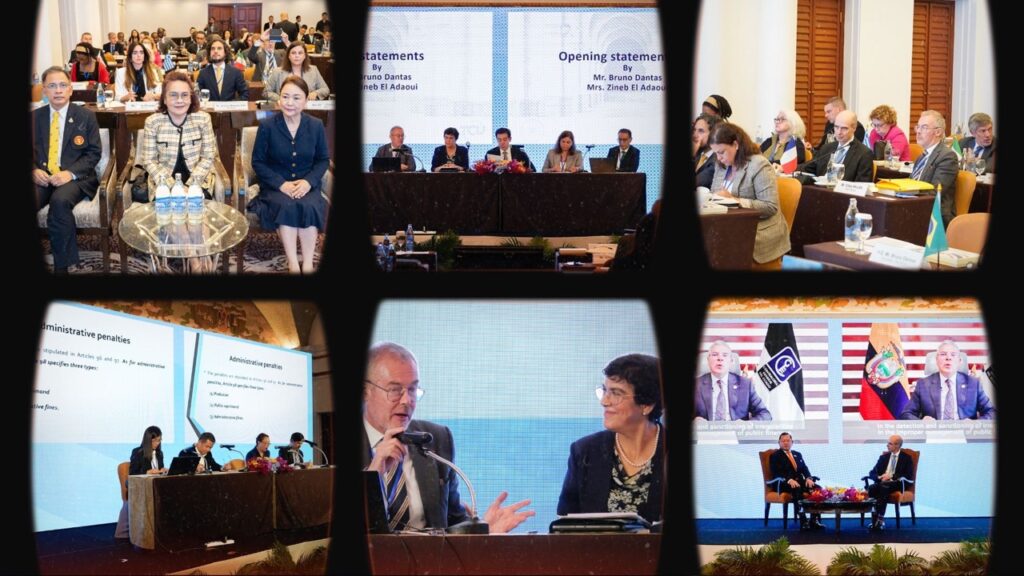
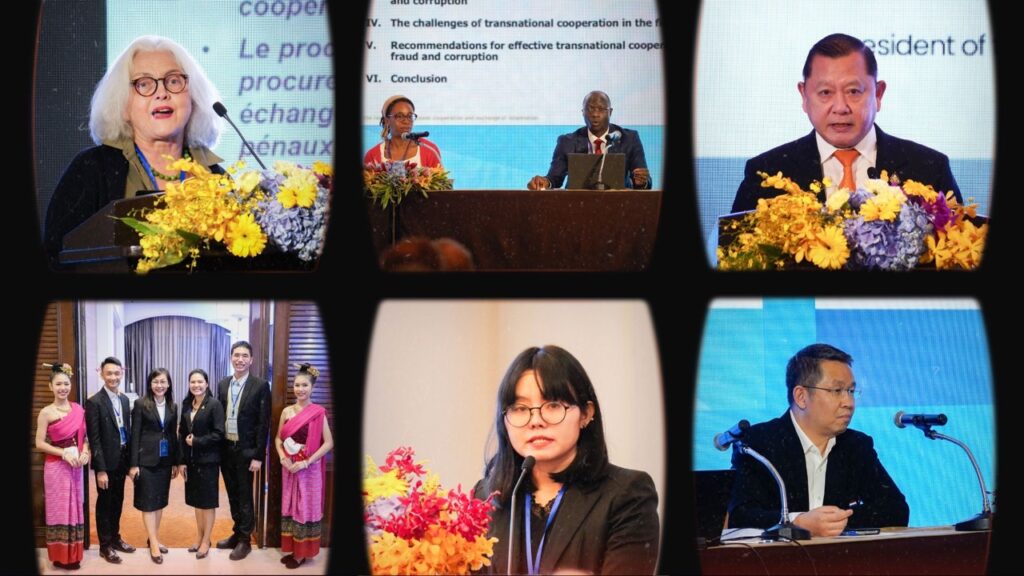
About the author:
Dr. Sutthi Suntharanurak is the Director of International Affairs Office of State Audit Office of the Kingdom of Thailand. Please contact sutthisun@gmail.com

